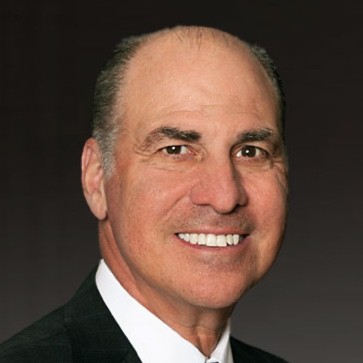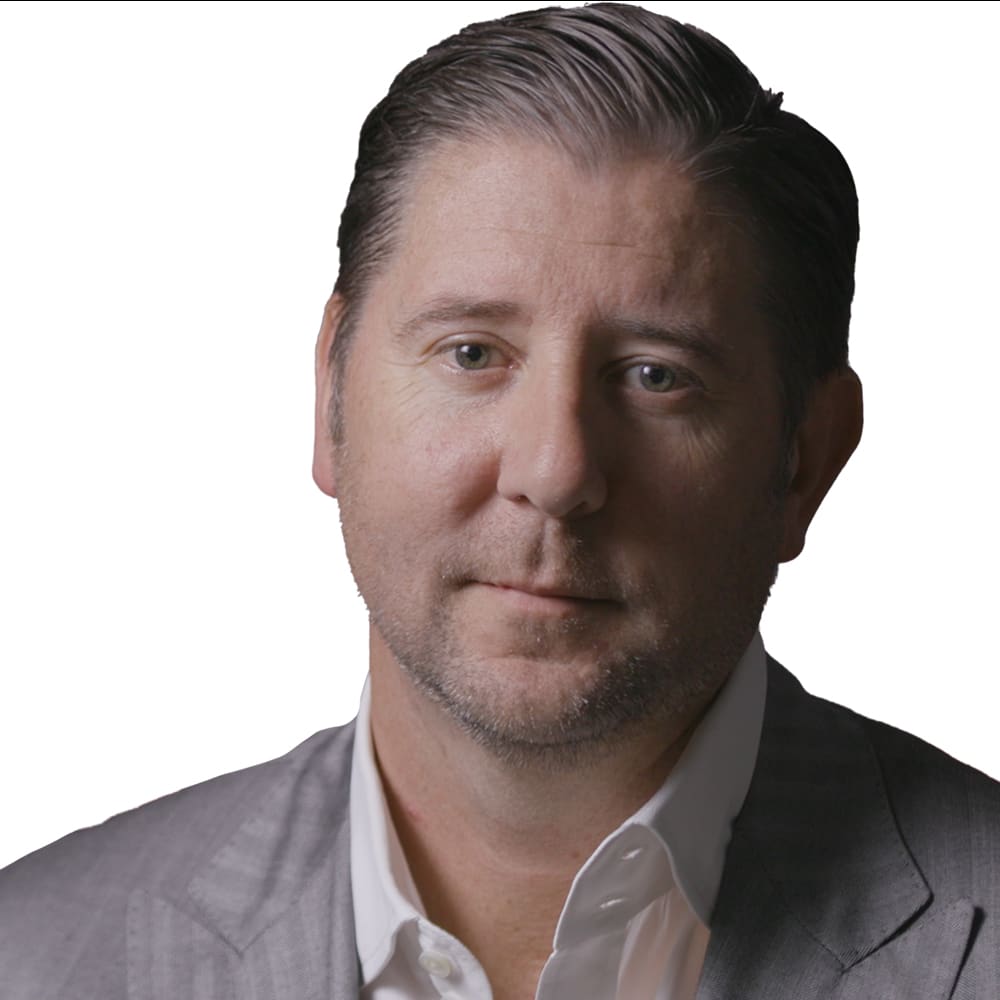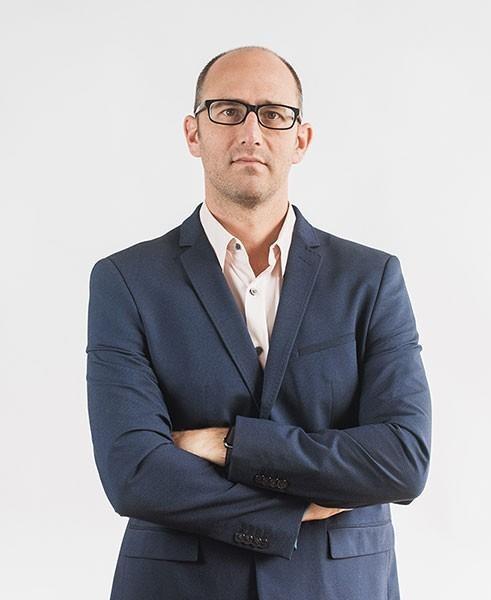Transcripts

Erik: Joining me now is Harley Bassman, managing partner at Simplify Asset Management. Harley has prepared a slide deck to accompany this interview. Registered users will find the download link in your research roundup email. If you don't have a research roundup email, it means you're not registered yet. Just go to macrovoices.com, click the red button above Harley's picture that says "Looking for the downloads."
Harley, I've been really looking forward to this interview with you this week because so many people are talking about the inverted yield curve. And I don't know the narratives and lore that go along with that. I'd like to push a little harder and drill down in this interview into what an inverted yield curve means specifically, what history tells us about it, and its impact on asset prices. Under what set of conditions does that make sense? Can we get into that in this week's interview?
Harley: Glad to be back. Wonderful to speak with you! Best podcast out there. We're going to talk about that and a number of other ideas of how to go and make money off the curve inversion.

Erik: Joining me now is The Felder Report founder and publisher Jesse Felder. Jesse, it's great to get you back on the show. Listeners, Jesse prepared a slide deck for this week's interview; you'll find the download link in your research roundup email. If you don't have a research roundup email, it means you haven't registered yet at macrovoices.com. Just go to our homepage, click the red button above Jesse's picture that says, "Looking for the downloads." Jessie, as we dive into the slide deck on page one here, you've got equity valuations and interest rates. Before we even get into that, I want to just start with a real high-level picture that I think is on everybody's mind, which is all the smartest guys said, "Hey, it's a bear market rally, you know, don't trust it, it's gonna roll back over, the bear market's not over, the bottom is not in yet." Boy, if that's right, and this bear market rally sure is pretty long in the tooth. What's going on here? Is something changed? Or why are we having this experience where everybody's waiting for the recession and the resumption of the bear market? But it's not happening?
Jesse: Well, I mean, that's the question that is on everyone's minds, right? Is this a bear market rally? Are we going to have a soft landing? I've been thinking about this idea of a soft landing. And to me, it's pretty astounding. It reminds me of the old joke about the optimist who falls off the top of a skyscraper and on the way down, as he passes every level, he says to himself, "So far, so good," because he hasn't hit the bottom yet. That maybe things are going to work out, okay? And I think that's kind of where we are in the cycle, where people are looking to say, "Well, we don't see a recession materializing right now in front of our eyes. And so maybe things are going to work out." But I think they are underestimating the impact. It's astounding to me that it's obvious to everybody, everybody knows that these things work with long and variable lags, monetary policy and the rise in interest rates and all of these things. But we're not willing to wait until those lags actually kick in, which is, you know, right about now. I have a couple of charts in there that show a 24-month lead on a composite of the dollar, interest rates, and oil prices, and all these kinds of leading indicators suggest that if a recession is going to happen, it should start to materialize before the end of the year, over the next several months. So I still think we're kind of halfway down, you know, after we've fallen off the top of the skyscraper, and we haven't hit the ground yet, but we're headed in that direction. And so I think the idea that we're headed for a soft landing is overly optimistic.

Erik: Joining me now is Santiago Capital founder Brent Johnson. Brent, it's been a long time. Great to get you back on the show.
Brent: Yeah, happy to be here Erik. I'm always happy to talk to you and your listeners!
Erik: Folks, Brent has prepared a slide deck to accompany this week's interview. And you're really going to enjoy this one. Because Brent's done something for us that very few guests are willing to do, which is he took his slide deck from when he was on MacroVoices a year ago, reproduced it updated it and is prepared to talk about what he got right and what he got wrong. But before we even get into that, Brent, I want to frame this discussion in the sense that we have a very, very different geopolitical situation than we had. A year ago, the last time we spoke, the situation between Ukraine and Russia, lots of people have lots of opinions. My opinion is very much that this is likely to escalate beyond just Russia and Ukraine, I think that the tension through the Ukraine crisis between the United States and Russia is likely to escalate to the United States, Russia, and China all being in a new challenge of who really is the global hegemonic superpower, both militarily and economically over the world.
First question Brent is do you agree whether or not we're actually at risk? I'm not necessarily making an opinion on but do you agree that the United States position in the world is at least going to be challenged by Russia and China? And if so, I think we ought to focus this conversation on okay, what does that mean for your prognosis for the dollar?
Brent: Sure and I would totally agree with you on that, I've kind of categorized what's going on as the big game or the great game, or even a Game of Thrones, because I really think that this is what's happening now. And it doesn't mean it's all going to necessarily happen tomorrow or next week. But that is where the ball is headed. And I unfortunately, as much as I would love to see this turn around and go back the other way. I just don't think that that's likely. So I think we need to prepare for more volatility, and more hostility than we've seen so far.

Erik: Joining me now is Matt Barrie, CEO of Freelancer.com. Matt, it's great to get you on the show, I want to talk about artificial intelligence. It's a topic that I've been aware of literally, since I was a teenager. I got my start in life, sneaking into the Artificial Intelligence Laboratory at MIT in the 1970s. So, needless to say, a long time ago. AI has been progressing very, very slowly. Since then, steadily slowly, then all of a sudden, about a year ago, something happened. And the progress has been absolutely mind boggling. What's going on?
Matt: Well, there's a few things going on. And certainly the last 6 to 12 months have been a wild ride. Probably start off, before we get into the underlying technology, is talking about some of the practical applications and kind of what's blown up there. You know, if you fast forward back, as recently as August 2022, last year, you're an illustrator, you're going along fine businesses as usual, you're getting commissions to do art, and a software tool and a stable diffusion gets released. Now, I, like many other people download several diffusion when it first came out. And this is a software package that will take a text string and turn it into an image or an illustration. And you download it, you play around with it for a few hours typing in various text strings and tweak a few parameters and you'd kind of get out the other side, some dream like sort of images, part Picasso, part Salvador Dali, you could kind of see that that image, somewhat looked like the string you'd put in as the input.
But it was nothing really more than the toy at that point in time. You'd play with it for three or four hours, you'd maybe get something that looks a bit artistic, and you'd go ok, that's interesting, but let's move on. Fast forward, two and a half months later, and another tool came out called Midjourney. And this time, you would type in a text string, and something magical would happen. You would get highly artistic, almost photorealistic images come out the other side of anything you type in, anything. And all of a sudden, the entire design world changed. And subsequent releases came out of this tooling and it's been absolutely incredible. You can type in, my niece can type in any sentence now and get out a hyper realistic high resolution image of anything. And this is like an atom bomb dropping on the design industry and subsequent evolutions of things like Adobe Firefly. And you can now take a graphical image of someone's face, which is in two dimensions. and you can twist it and turn it around and see the back of the head, even though the back of the head was never captured, in any photograph ever. You can take an image of a scene and you can zoom out of it. And the AI will infill in full photo realism, as you continue to zoom for as long as you like. Something crossed, what I call the uncanny valley, where, this is a concept in computer science, where if a human sees a picture of another human, and it's very, very primitive, you've got very low affinity with that image, then over time, as the quality of that picture of a human improves or might be a robot, something in the physical world is the quality of the representation of a human improves, we build affinity, then it gets to a point where it becomes very unsettling. For example, in a horror movie, you see obviously something that's quite fake, but it looks like a human but not quite a human. And then you have like this big trough where the human brain feels very much at ease when it sees a picture of that human because it's kind of close to a human, but it's not actually a human. And then when you come out the other side of that uncanny valley, where you look at an image and it's photorealistic. And you know, it's human, it's real, and you build that affinity back up again. And something has happened in design where the AI was producing images that kind of look okay, not great, what have you and then all of a sudden leapt forward and we're hyper realistic. And illustrators are, they're scratching their heads going, do I have a job still, because the software now can illustrate as good as any illustrator out there can take a photo is, you know, representation of a photo as good as any photographer out there in the world. And there are serious questions about what the future is of the design industry. And this sort of leap that's happening in artificial intelligence is happening not just in images, it's happening in all sorts of other modes of communication. For example, text and chat. I'm sure many of your listeners have already played with chatGPT, right? ChatGPT is a chatbot where you type in a sentence and it will chat to you and you can ask him to write an essay for you. You can ask it to solve the problem for you, and something happened.
Also around the same time, where it went from a toy where you would ask him a question, you know, like write me a poem about a particular topic, and it wouldn't rhyme or it wouldn't really make too much sense because it was trying an interesting little novel toy, to something now where you can get chatGPT to write at a level that exceeds probably the average human by substantial amount. It can write for you a stock purchase agreement for a series a stock subscription, or financing that's happening, you can get it to answer questions that are at the level of university students would face in their assessments. It's now passing the top 1% and verb on the graduate recruitment exam, which is to get into college in the US. It's in the top 7% of the LSAT, it can pass the bar exam to become a practicing lawyer. And it's doing this in leaps and bounds across all ranges of human endeavor. And it's doing it in a way which is really magical and incomprehensible, unpredictable to the inventors that we've been working on the AI and frankly, quite shocking,

Erik: Joining me now is Uranium Insider Newsletter founder and publisher Justin Huhn. Justin prepared a slide deck for this week's interview; you'll find the download link in your research roundup email. If you don't have a research roundup email, just go to our homepage, MacroVoices.com, click the red button above Justin's picture that says "Looking for the downloads." Justin, it's so exciting for me to get you back on the show. The last time I interviewed you, I was just beginning my own journey of education around all things nuclear. I didn't frankly know what the hell I was talking about, as some of our listeners politely and others not so politely let me know now I think I know enough to be dangerous. So hopefully, I won't embarrass myself too much at this interview, but I'm super excited.
I've been following your newsletter quite closely for many months now, starting to build my positions in uranium and other nuclear technologies, and very excited about this future. So I want to get an update. Last time I talked to you, I was kind of talking long-term nuclear renaissance stuff, what I see on the horizon long-term, and you were saying, "Look, it doesn't even matter whether that comes true or not. There's this specific setup that was bullish in the uranium market, regardless of whether there's a policy change or a nuclear renaissance, or any of that. It just has to do with fuel cycles and so forth." So as I see on your first slide here, on page one of your deck, you're talking about the Renaissance. Has anything changed in terms of there being a setup that is independent of that? And if so, or if not, how does the Renaissance angle come into it? And when are we going to start to see the market discount that? Because, boy, I don't think we've really realized what's coming in.
Justin: Sure. Yeah, you bring up good points, Erik. And thanks for having me back. I'm looking forward to talking with you again. And you're right, our last chat, we kind of did a 30,000-foot view of the broader picture, the broader thesis, longer-term vision, etc. And you're absolutely right, some of the exciting developments for nuclear in the future of nuclear in terms of new countries pledging to build new nuclear, countries expanding on nuclear, carbon neutrality goals, net zero goals, etc., etc. The advancement of SMR (small modular reactors), advanced nuclear reactors, these are all very exciting for me. They're most exciting for just the abundance for humanity in the future kind of level, not necessarily from an investing standpoint, because none of these new major build-out plans going out into the 2030s, nor the potential snowballing adoption of small modular reactors have any effect whatsoever on the short to near kind of midterm investing thesis. So Erik, if you actually just model out existing nuclear reactors, nuclear reactors under construction that will be grid-connected in the next five years or so, and you look at demand based on that alone, with no other demand from future builds, we're going to see a significant supply shortfall and therefore pressure on rising prices. And that's really kind of the fundamental basis for this as a commodity investment: looking at the supply and demand picture. What does that look like for the next 5-6-7 years? And I can tell you, it looks extremely bullish for the commodity.
MACRO VOICES is presented for informational and entertainment purposes only. The information presented in MACRO VOICES should NOT be construed as investment advice. Always consult a licensed investment professional before making important investment decisions. The opinions expressed on MACRO VOICES are those of the participants. MACRO VOICES, its producers, and hosts Erik Townsend and Patrick Ceresna shall NOT be liable for losses resulting from investment decisions based on information or viewpoints presented on MACRO VOICES.
